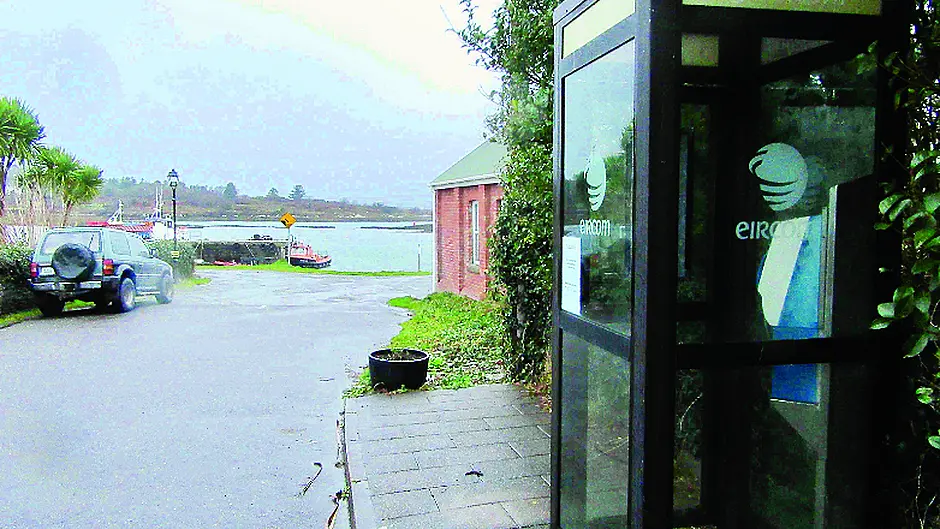Communities from Bandon to Bantry will see their phone boxes removed by the end of March and Bere Island will lose its only pay phone – in a coastal area where there is no mobile phone coverage.
By BRIAN MOORE
COMMUNITIES from Bandon to Bantry will see their phone boxes removed by the end of March and Bere Island will lose its only pay phone – in a coastal area where there is no mobile phone coverage.
Bantry and Glengarriff will then be the only two towns left in West Cork where public pay phones will be available.
A nationwide removal of pay phones by Eir Ireland is underway – and just 14 public pay phones will remain in Co Cork.
‘In total, there are 38 kiosks outside Cork city,’ a spokesperson for Eir told The Southern Star, ‘and 24 will be removed as part of our payphone removal programme.’
‘We are required, under our public service obligation, to maintain a reasonable public payphone system, but if a payphone is used for less than a minute a day over a six-month period, then we can remove it,’ the spokesperson added.
However, concerns have been voiced by many where these pay phones are to be removed, especially in areas where there is little or no mobile phone coverage. One remote community, on Bere Island, will lose its only public pay phone by June.
The lone pay phone is located in the village, just off the pier. ‘This is a very busy area with residents and visitors coming to the island, so in the case of an emergency at the pier, or the village, there would be no way to contact anyone for help, because there is no mobile phone coverage here,’ explained David McCarthy, who travels to and from Bere Island on a regular basis.
Brendan Murphy, who runs the local post office and Murphy Ferry Services on the island, agrees: ‘There are a lot of people using the pier, especially during the summer when we have kids swimming and kayaking.
‘The phone box may not be used that often but if something should happen it could save a life. Also there a some elderly people who have no mobile phones or even a phone in their homes who use the public phone box on a Sunday after mass when their family would call to see if they are alright,’ he pointed out.
‘This is much more about staying in contact with loved ones and feeling secure in the knowledge that the phone is there should they need it. It can’t just be about the number of times the phone box is used, not on an island with no mobile coverage,’ he added.
Deputy Michael Collins TD has called on Minister for Communications, Denis Naughten TD, to ensure that people living in rural remote communities, with little or no mobile phone service, are not put at risk.
Deputy Collins said: ‘I have contacted Minister Naughten and emphasised the need to ensure that remote rural communities are not left without a public phone facility. A service review must take place before any removal of a pay phone from these communities.’
‘Durrus is another place where mobile coverage is bad and the pay phone is scheduled to be removed. I would see the availability of a public pay phone is these areas as akin to the rural defibrillator groups. The defibrillator is not used everyday but can be a lifesaver in an emergency,’ Deputy Collins concluded.
Earlier this year, a women’s support group hit out strongly when it emerged that Skibbereen was to lose public phone boxes. ‘‘Public call boxes are important – often vital – for women whose personal phones are being monitored by their abusers,’ said Marie Mulholland of West Cork Women Against Violence (WCWAV).








